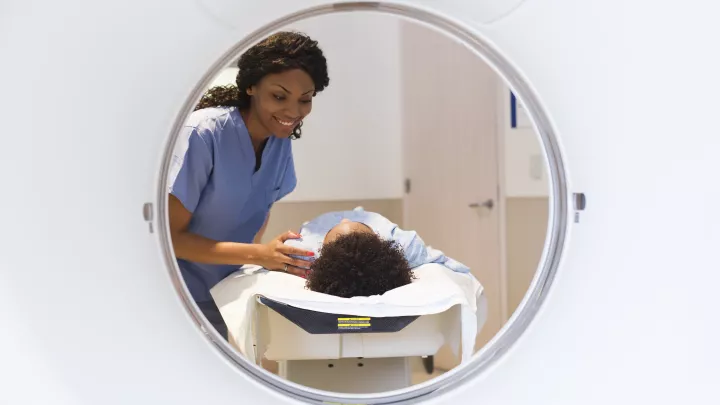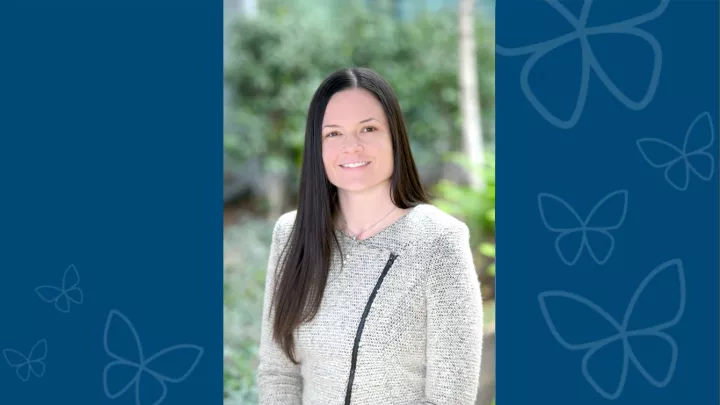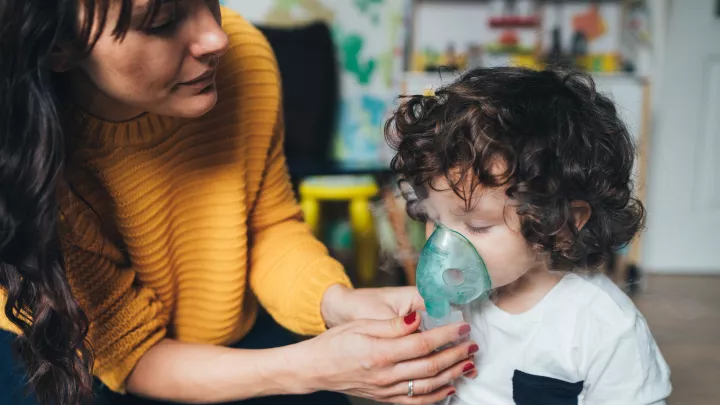Pulmonary Function Laboratory
The Pulmonary Function Laboratory at Children’s Hospital Los Angeles is the only pulmonary function laboratory in the region exclusively focused on diagnosing breathing and lung problems in children. We perform a high volume of pulmonary function tests every year, making us one of the most experienced labs in the country. We offer all the tests your child needs for an accurate diagnosis and effective treatment plan.
What Are Pediatric Pulmonary Function Tests?
Pulmonary function tests (also called lung function tests or breathing tests) assess how well your child’s lungs work. This information helps our specialists diagnose breathing problems, develop treatment plans and evaluate treatment efficacy.
Pulmonary function tests measure how well your child’s lungs:
- Absorb oxygen
- Take in air during inhalation and expel air during exhalation
- Respond to physical exertion or low oxygen levels at high altitudes
Pediatric Pulmonary Function Tests: What to Expect
Our lab technicians are experts in helping children of all ages—especially those with developmental or medical issues—correctly perform breathing tests. We make testing as stress-free and fun as possible, while getting fast, accurate results.
Before testing, you and your child may watch a video to see what the test involves. Some tests require that your child wear a soft nasal clip while breathing through a mouthpiece. The nasal clip keeps them from breathing through their nose. Your child might find these devices uncomfortable, but they aren’t painful.
Types of Pediatric Pulmonary Function Tests
The type of pulmonary function test your child needs depends on their symptoms or condition. Many children need more than one test. Our experts work together to determine which diagnostic tests your child needs based on their unique symptoms and health history.
We offer all the lung and breathing tests your child might need, including:
- Spirometry
- Cardiopulmonary exercise test
- High-altitude simulation test
- Lung volume test
- Methacholine challenge (asthma) test
- Respiratory muscle strength test
- Sweat test
Spirometry
A spirometer device measures:
- Breathing: How much air your child can breathe in and out of their lungs
- Cough velocity: How easily and fast your child can blow air out of their lungs
- Lung volume or capacity: How much air your child’s lungs can hold
- Treatment effectiveness: How well a medication opens your child’s airways
During spirometry:
- We place a clip on your child’s nose.
- Your child takes a deep breath (inhales).
- Your child exhales into a mouthpiece that connects to a tube and spirometer device, which measures air flow.
- We repeat the test at least three times for an accurate measurement.
Cardiopulmonary exercise test
A cardiopulmonary exercise test assesses how well your child’s heart and lungs work during and after physical activity. This test helps diagnose breathing problems, such as exercise-induced asthma.
Before an exercise test, your child takes a spirometer test to get a baseline airflow reading.
During an exercise test:
- Your child breathes into a mouthpiece while wearing a soft nasal clip.
- We place electrodes (small stickers) on your child’s chest to measure heart rate (electrocardiogram or ECG) and a pulse oximeter clip on one finger to measure blood oxygen levels.
- Your child runs on a treadmill or pedals a stationary bike for several minutes.
- When the exercise is over, your child breathes into a spirometer every five minutes for up to 30 minutes.
High-altitude simulation test (HAST)
A high-altitude simulation test (HAST) helps determine if your child needs supplemental oxygen—and if so, how much—while on an airplane or on land at higher altitude areas (above 8,000 feet).
During a high-altitude simulation test:
- Your child takes a spirometer test to get a baseline airflow reading.
- We place electrode stickers on your child’s chest to measure heart rate (ECG) and clip a pulse oximeter device to their finger to measure blood oxygen levels.
- Your child wears a nasal cannula (soft tube with prongs) in their nose to receive supplemental oxygen, if needed, and a mask that covers their mouth and nose.
- We deliver an oxygen mixture through the mask that simulates the oxygen and pressure in an airplane or at high altitude.
Lung volume test
Lung volume tests measure the amount of air your child’s lungs can hold. This is also known as lung capacity.
During a lung volume test:
- Your child sits inside an enclosed see-through booth.
- We place a soft clip on your child’s nose.
- Your child breathes normally or pants into a mouthpiece.
- A device measures pressure inside the booth and calculates your child’s lung volume.
Methacholine challenge (asthma) test
This test can determine if your child has asthma. During a methacholine challenge test:
- Your child performs a baseline lung function test (spirometry).
- We use a nebulizer (machine that turns liquid medication into an inhaled mist) to give your child a drug called methacholine that narrows airways in the lungs.
- Your child breathes into a spirometer after each inhalation to see how much the airways close up.
- We repeat these steps several times.
- Your child receives medication to open the airways (bronchodilator).
- Your child breathes into a spirometer to ensure lung function returns to normal before going home.
Respiratory muscle strength test
A respiratory muscle strength test measures the strength of the muscles your child uses to take deep breaths and cough.
Your child wears a nose clip and breathes into a mouthpiece while completing three tests:
- Maximal inspiratory pressure (MIP) test: Measures the strength of muscles used while breathing in
- Maximal expiratory pressure (MEP) test: Measures the strength of muscles used while breathing out
- Maximal voluntary ventilation (MVV): Measures inhalation and exhalation muscle strength as muscles work together
Sweat test
A sweat test helps diagnose cystic fibrosis by measuring the amount of chloride (a salt component) in your child’s sweat. Children with cystic fibrosis have higher than usual sweat chloride levels.
Cystic fibrosis is an inherited (genetic) condition that causes mucus to build up in your child’s lungs and other organs. Learn more about how we perform this test at our laboratory and nationally accredited Cystic Fibrosis Care Center.
Pulmonology and Sleep Medicine Care at Children's Hospital Los Angeles
Our expert team of pulmonology and sleep medicine specialists diagnoses and manages all types of breathing, lung and sleep issues in children. Learn more about our leading-edge Pulmonology and Sleep Medicine services.
Contact us
Pulmonology and sleep medicine experts at CHLA welcome new patients, referrals and second opinions. Please contact us:
- Phone: 323-361-2287
- Online: Make an appointment
- Second opinions: onlinesecondopinion@chla.usc.edu or visit Online Second Opinions


